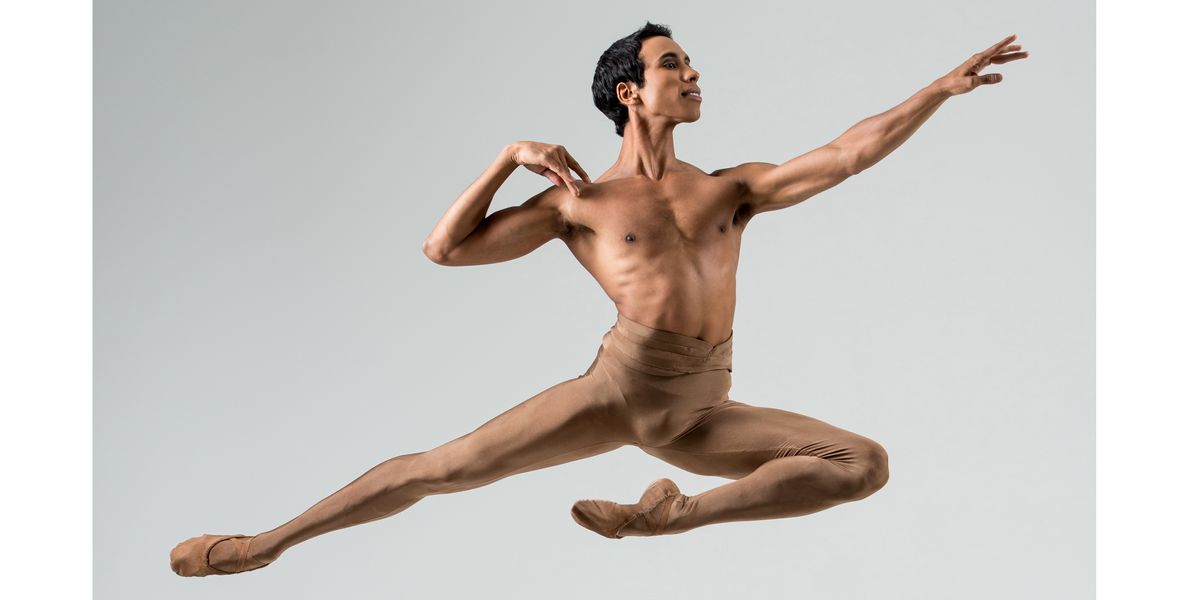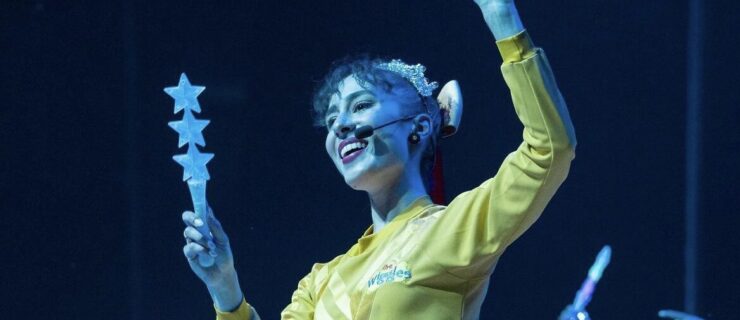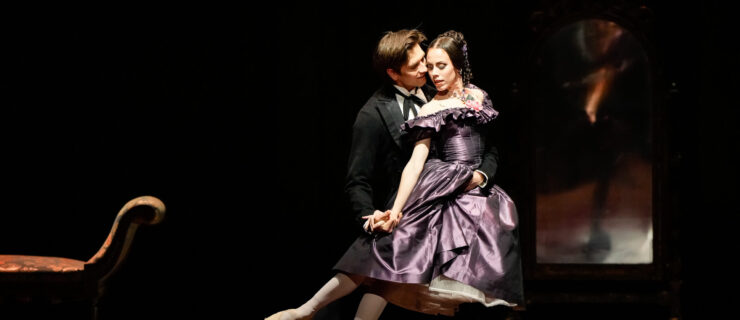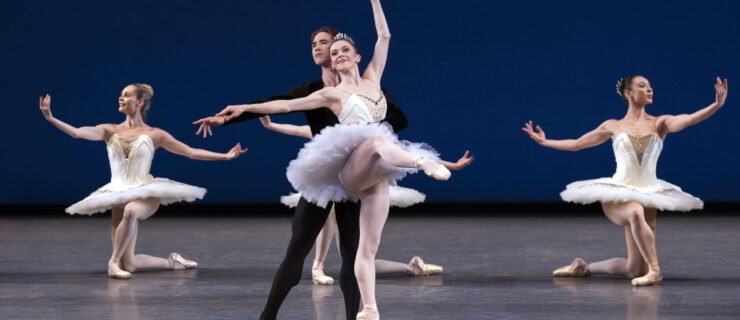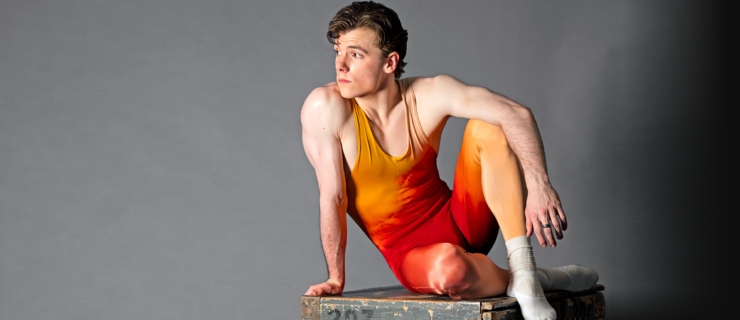Onstage, I'm a Professional Dancer. Offstage, I've Been Racially Profiled by Law Enforcement.
Dance has allowed me to travel the world and live in three magical cities. Originally from Melbourne, Australia, I’ve danced with The Australian Ballet, Grand Rapids Ballet and Dance Theatre of Harlem, as well as the North American tour of Christopher Wheeldon’s An American In Paris. Now I am a freelance artist based in New York City. But my travels have also opened my eyes to the work we still have to accomplish when it comes to the culture of racism. As recent events unfold in the news, the horrific images and stories of suffering have brought back memories of my own experience. During my career, I have had several encounters with police officers that have had a profound impact on me, the way I view the world and the concept of “white privilege.”
Incident 1 (Melbourne, Australia)
I was 17 and on holiday in the Gold Coast (think the Florida of Australia). After a night out, I was on my way home and couldn’t find a bathroom—a situation familiar to many of us. I decided to slip discreetly down an alleyway when two police officers saw me and followed me. As they approached, they told me they would arrest me unless I took my shirt off and wiped up my urine with it. “Wipe it harder,” they instructed me. They laughed as they told me to put my urine soaked shirt back on. I felt degraded—their intent was to humiliate me rather than to serve and protect.
Incident 2 (Grand Rapids, Michigan)
I was driving through an affluent neighborhood after visiting a friend that lived there. Shortly after pulling out of the driveway, a cop stopped me. He asked me what I was doing in the area. I explained I was just visiting a friend but he was unconvinced. After 10 minutes of harsh questioning, I showed him my friend’s text, which finally convinced him to let me go. He stopped and questioned me because he felt that I looked like I didn’t belong.

Sharon Bradford, Courtesy DTH
Incident 3 (Grand Rapids, Michigan)
The police stopped me another time because a tail light was out on my car. I had no idea. I apologized and told them I would get it fixed immediately. I thought at worst I would receive a fine, but they proceeded to check my car from top to bottom—from my trunk to the glove compartment. After finding nothing, they then deemed my car “unroadworthy.”
Incident 4 (Grand Rapids, Michigan)
I was walking towards my car from a local bar when two police officers stopped me. They asked me to put my hands in the air, shoved me against the wall and proceeded to check all my pockets. In my right one they found my fish oil, turmeric and glucosamine vitamins wrapped in a paper towel—I had forgotten to take them at dinner. One of the officers confiscated them thinking they were drugs. I asked the other if I could drop my hands as his partner went to evaluate the pills and he replied with a stern “NO.” He told me there would be dire consequences if I even moved a finger. I remember looking around the quiet street thinking that if something happened to me, I would just become another statistic.
It started to rain. For over 20 minutes I stood with my arms above my head as the officer continuously berated me. After his partner returned and confirmed my vitamins were not drugs, they let me go. I didn’t realize how much this incident scarred me until I bumped into one of the officers months later as I was picking up takeout. He did not recognize me, but I shook as I paid, remembering his aggression and how threatened I felt that night.
Incident 5 (Driving from New York to Connecticut)
Last year I rented a luxury car and drove to a wedding three hours away. I was in the left lane when a car suddenly sped up behind me. I moved over to the right to let him pass. I noticed a police cruiser a few cars behind me mirror my move. Fifteen minutes later he pulled me over. He let me know that I was driving five miles per hour over the speed limit but that I wasn’t getting a fine. I continued my drive until a second police car started following me. He was noticeably on my tail, as if he was waiting for me to make the wrong move. I continued very cautiously and after 15 minutes he eventually left me alone. Shortly afterwards, a third cop pulled me over. I asked why and he told me that he needed to run my license and give me a breathalyzer test. He accused me of swerving when I was not. These stops added an additional 45 minutes to my trip, and I almost missed seeing my friend walk down the aisle. Did they suspect me of stealing the car? I now think twice about renting a car on the nicer side.
As an artist, I try to portray strength, grace and power in everything I dance. Offstage my experiences with police have left me feeling diminished. I share these stories not for pity, but to create awareness. Globally, there is an appetite for change and now is the time to learn, listen and grow. And while many of the conversations we’re having right now may be uncomfortable, it is much more uncomfortable to experience racism. Despite this, I have heard indignation from some in the white community who have felt that they themselves have made no contributions to racism and that our stories are gross generalizations. This comes from their white privilege.
White privilege is getting to drive in a rich area without worrying about getting stopped by the police
White privilege is not feeling anxious that your car might get ransacked because your taillight is out and the police think you might have drugs.
White privilege is knowing that the police are more likely to give you the benefit of the doubt when you say the vitamins in your pocket are not drugs
White privilege is not leaving an hour early for a trip, or renting a car of lesser value, because you’re likely to get stopped numerous times.

Lawrence with members of Dance Theatre of Harlem in Ulysses Dove’s Dancing on the Front Porch of Heaven.
Christopher Duggan, Courtesy Jacob’s Pillow.
I would like to leave you with one last story from a recent tour this past December. I was in Central Pennsylvania having dinner after the last dress rehearsal of Nutcracker with the director and his crew. A drunk white man across the other side of the bar thought we were laughing at him (we weren’t) and singled me out. He threatened to kill me, and even walked to his car to get his gun. I was the only person of color in the bar and this clearly bothered him. Luckily he decided to drive off, and I felt a sense of relief when I realized everyone in the bar was on my side. The next day, as I danced my way through opening night, I wondered if the audience knew their Prince Cavalier’s life was threatened the night before and that he was a regular target of law enforcement.
There are many more with stories like mine. But by listening to them, and learning how systems have failed those affected by racism, we can effectively fight for change.
